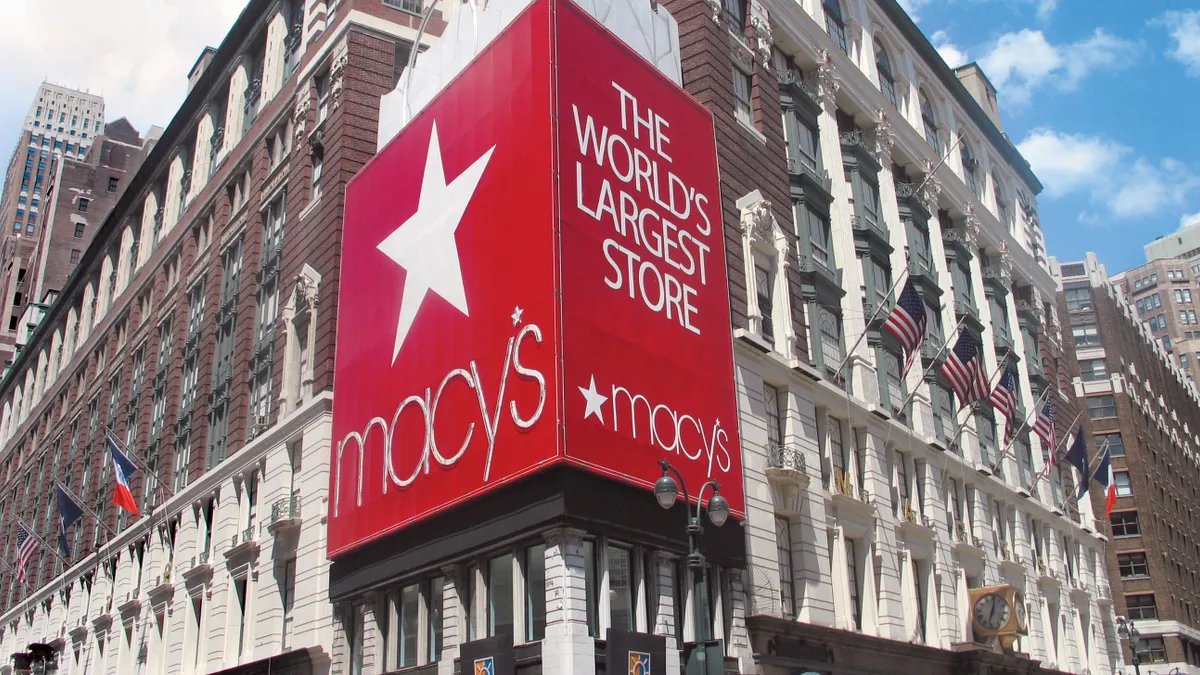Dive Brief:
-
Macy’s displaced last year's winner Kohl’s to take top honors among department stores in Harris Poll’s 28th annual EquiTrend Brand Equity Index. The index measures brands’ health over time: Macy’s, which has been struggling, rose at least 7% from 2015 on key factors of familiarity, quality and purchase consideration.
-
Apple displaced 2015 leader Best Buy in Harris Poll's rankings of online electronics retailers, and Nordstrom toppled Lord & Taylor in the luxury department store category.
-
More than 97,000 U.S. consumers assessed more than 3,800 brands across nearly 500 categories, Harris Poll said.
Dive Insight:
That Macy’s would take the top spot in its category at a time when it’s struggling with underperforming stores, challenges online and pressure to unlock value in its real estate speaks to its brand's enduring strength. And it also shows that if it toys too much with its presence in the U.S.—e.g., closing stores or perhaps even selling its flagship store in New York—it could risk undermining that strength.
It’s also an open question whether Macy's move to create an off-price unit, Backstage, could devalue its flagship brand, according to Mark Cohen, director of retail studies at Columbia University's Graduate School of Business.
“They’ll do a lot of business. The question is: How much is truly incremental, how much simply represents transfer sales,” Cohen told Retail Dive last year. “And more insidious than that, how much will it further erode Macy’s brand equity?”
Joan Sinopoli, vice president of brand solutions at Nielsen, notes in a statement that consumers’ notions of brands accumulate over time, but they do eventually lead to purchases and loyalty.
“Consumers form impressions of brands long before they ever use them, based on their perceptions and what they may know from trusted sources,” Sinopoli said. “This high level equity is the gateway to eventual purchase; it also helps to protect brands from the consequences of an occasional misstep. The strength of a company’s brand equity can have direct business and financial outcomes.”













